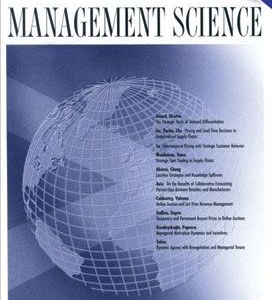
Buser, T. (2016). The impact of losing in a competition on the willingness to seek further challenges Management Science, 62(12):3439--3449.
-
Affiliated author
-
Publication year2016
-
JournalManagement Science
How do people react to setbacks and successes? I use a laboratory experiment to determine the effect of winning and losing in a competition on the willingness to seek further challenges. Participants compete in two-person tournaments in an arithmetic task and are then informed of their score and the outcome of the competition. Participants then have to decide on a performance target for a second round: the higher the target, the higher the potential reward, but participants who do not reach the target earn nothing. Conditional on the score, winning or losing is exogenous. I find that, conditional on first-round scores, losers go for a more challenging target. Losers also perform worse, leading to lower earnings and a higher probability of failure. These results are driven by gender-specific reactions to winning and losing: men react to losing by picking a more challenging target while women lower their performance. These findings could have important implications for our understanding of individual career paths. Early outcomes could alter the probability of success and failure in the long term.